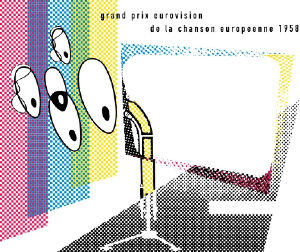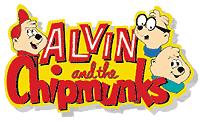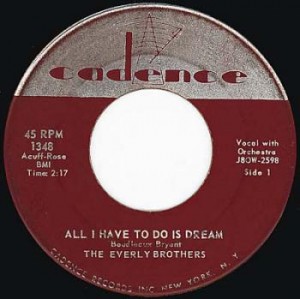"Make Me a Miracle" is a popular song. It was written by Al Hoffman, Dick Manning, and Hugo Peretti and Luigi Creatore and published in 1958.
The best-known recording of the song was done by Jimmie Rodgers, charting in 1958.
"Make Me a Miracle" is a popular song. It was written by Al Hoffman, Dick Manning, and Hugo Peretti and Luigi Creatore and published in 1958.
The best-known recording of the song was done by Jimmie Rodgers, charting in 1958.

The Eurovision Song Contest 1958 was the third edition of the annual Eurovision Song Contest. Organised by the European Broadcasting Union (EBU) and host broadcaster Nederlandse Televisie Stichting (NTS), the contest, originally known as the Grand Prix Eurovision de la Chanson Européenne 1958 was held on Wednesday 12 March 1958 at the AVRO Studios in Hilversum, the Netherlands and hosted by Dutch television presenter Hannie Lips. This marked the first time that the contest was hosted in the country of the preceding year's winner, a tradition that has been continued ever since.

Domenico Modugno was an Italian singer, actor and, later in life, a member of the Italian Parliament. He is known for his 1958 international hit song "Nel blu dipinto di blu", for which he received Grammy Awards for Record of the Year and Song of the Year. He is considered the first Italian cantautore.

Alvin and the Chipmunks, originally David Seville and the Chipmunks and billed for their first two decades as the Chipmunks, are an American animated virtual band and media franchise first created by Ross Bagdasarian for novelty records in 1958. The group consists of three singing animated anthropomorphic chipmunks named Alvin, Simon, and Theodore who are originally managed by their human adoptive father, David "Dave" Seville.
The Billboard Hot 100 is the music industry standard record chart in the United States for songs, published weekly by Billboard magazine. Chart rankings are based on sales, radio play, and online streaming in the United States.

"The Little Drummer Boy" is a popular Christmas song written by American composer Katherine Kennicott Davis in 1941. First recorded in 1951 by the Trapp Family, the song was further popularized by a 1958 recording by the Harry Simeone Chorale; the Simeone version was re-released successfully for several years, and the song has been recorded many times since. In the lyrics, the singer relates how, as a poor young boy, he was summoned by the Magi to the Nativity of Jesus. Without a gift for the Infant, the little drummer boy played his drum with approval from Jesus's mother, Mary, recalling, "I played my best for him" and "He smiled at me".
The Billboard charts tabulate the relative weekly popularity of songs and albums in the United States and elsewhere. The results are published in Billboard magazine. Billboard biz, the online extension of the Billboard charts, provides additional weekly charts, as well as year-end charts. The two most important charts are the Billboard Hot 100 for songs and Billboard 200 for albums, and other charts may be dedicated to a specific genre such as R&B, country, or rock, or they may cover all genres. The charts can be ranked according to sales, streams, or airplay, and for main song charts such as the Hot 100 song chart, all three data are used to compile the charts. For the Billboard 200 album chart, streams and track sales are included in addition to album sales.

"Hard Headed Woman" is a rock and roll song recorded by Elvis Presley and published by Gladys Music, Presley's publishing company, in 1958. It is an American 12-bar blues written by African American songwriter Claude Demetrius. It was most notably recorded as a rock and roll song by Presley as part of the soundtrack for his 1958 motion picture King Creole, and was included on the record album of the same name. The song was also released as a single in both 78 RPM and 45 RPM formats. In 1958 it went to No. 1 on the Billboard charts and went to No. 2 for two weeks on the R&B chart. It became the first rock and roll single to earn the RIAA designation of Gold Record.
A record chart, in the music industry, also called a music chart, is a ranking of recorded music according to certain criteria during a given period. Many different criteria are used in worldwide charts, often in combination. These include record sales, the amount of radio airplay, the number of downloads, and the amount of streaming activity.

"Nel blu, dipinto di blu", popularly known as "Volare", is a song originally recorded by Italian singer-songwriter Domenico Modugno. Written by Modugno and Franco Migliacci, it was released as a single on 1 February 1958.
"Moonlight in Vermont" is a popular song about the U.S. state of Vermont, written by John Blackburn (lyrics) and Karl Suessdorf (music) and published in 1944. It was introduced by Margaret Whiting in a 1944 recording.

"All I Have to Do Is Dream" is a song made famous by the Everly Brothers, written by Boudleaux Bryant of the husband-and-wife songwriting team Felice and Boudleaux Bryant, and published in 1958. The song is ranked No. 141 on the Rolling Stone magazine's list of The 500 Greatest Songs of All Time. The song is in AABA form.
"The Chipmunk Song (Christmas Don't Be Late)" is a novelty Christmas song written by Ross Bagdasarian (under the stage name of David Seville) in 1958. Bagdasarian sang and recorded the song, varying the tape speeds to produce high-pitched "chipmunk" voices, with the vocals credited to Alvin and the Chipmunks, Seville's cartoon virtual band. The song won three Grammy Awards in 1958, for Best Comedy Performance, Best Children's Recording, and Best Engineered Record (non-classical); it was also nominated for Record of the Year.

"Dors, mon amour" is a love song written in French by Hubert Giraud, composed by Pierre Delanoë and performed in 1958 by André Claveau as France's entry and the winner of the pan-European Eurovision Song Contest, gaining other versions and minor commercial success.

"It's Only Make Believe" is a song written by drummer Jack Nance and Mississippi-born singer Conway Twitty, while both were touring across Ontario, Canada in 1958. The song was recorded on May 7 for MGM Records; produced by Jim Vienneau, it featured Floyd “Lightnin’” Chance on double bass. It was released on side B of "I'll Try" on July 14, 1958. Known as Harold Lloyd Jenkins until changing his name in 1957, Twitty was a relatively unknown rock n' roll singer at the time. That all changed when side B finally hit the chart in September, 1958, then made No. 1 twice, on November 10 and 24. The single topped both U.S. and the UK Singles Chart, and became the only No. 1 pop single of his career. Years later, on a segment of 'Pop Goes The Country', Twitty stated it was a hit in 22 countries, and sold over 8 million copies. He did not become a country music star until he crossed over in 1966.
France participated at the Eurovision Song Contest 1958, held in Hilversum, Netherlands. André Claveau with the song "Dors, mon amour" was selected as the nation's entry following a four-song national final held on 2 February 1958. At the contest, held on 12 March 1958, France won with 27 points.
Germany was represented by Margot Hielscher, with the song '"Für zwei Groschen Musik", at the 1958 Eurovision Song Contest, which took place on 12 March in Hilversum, Netherlands. "Für zwei Groschen Musik" was chosen at the German national final held on 20 January. This was Hielscher's second consecutive Eurovision appearance for Germany.

The song known as both "Gospel Boogie" and "A Wonderful Time Up There" was written by Lee Roy Abernathy, and first recorded by him in 1947 under the former name. This release, for the label White Church Record, credits the performance with variant spelling to "Leroy Abernathy Homeland Harmony Quartet".
King Creole is a song written by Jerry Leiber and Mike Stoller. The song was performed by Elvis Presley and recorded in 1958, and laid foundations to a musical drama film, King Creole. The song is based on King Creole, a singer/guitar player from New Orleans who is proficient in all different styles of rock and roll.